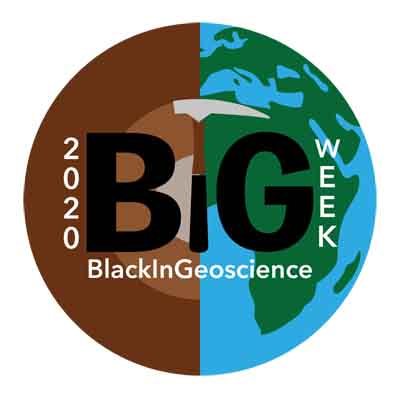21 April 2021–Concrete efforts to bring racial equity to the geosciences are receiving significant attention in the wake of new grassroots efforts and increased awareness of social justice issues in 2020, speakers said at the Seismological Society of America (SSA)’s 2021 Annual Meeting.
Last year’s Black in Geoscience Week, for instance, began as a grassroots movement to increase representation and raise visibility among Black researchers, as well as to foster networks and connections across the world, said Louisa Brotherson, a leader of the Black in Geoscience group.
 The need for community and awareness among Black geoscientists is critical, Brotherson said, especially in the face of severe underrepresentation in the field. In the United States, only 6% of geoscience doctoral degrees are awarded to students from underrepresented minorities, even as individuals in these groups make up 31% of the population. In the United Kingdom, Black students represent 1.6% of geology postgraduate researchers, compared to 3.8% of the 18 to 24 year-old-population in the country.
The need for community and awareness among Black geoscientists is critical, Brotherson said, especially in the face of severe underrepresentation in the field. In the United States, only 6% of geoscience doctoral degrees are awarded to students from underrepresented minorities, even as individuals in these groups make up 31% of the population. In the United Kingdom, Black students represent 1.6% of geology postgraduate researchers, compared to 3.8% of the 18 to 24 year-old-population in the country.
Brotherson, an experimental seismologist at the University of Liverpool, and her colleagues helped organize a variety of events for the week, held 6-12 September 2020, on social media channels and live on Zoom and YouTube. Each day focused on a different group within the geosciences broadly, including atmospheric and marine scientists, as well as the experiences of the global diaspora of Black scientists.
The week drew over 6.1 million Twitter impressions and a 3.2% engagement rate with tweets, and feedback was “overwhelmingly positive,” Brotherson said. “And we are hoping that it has started longer-term changes in attitudes and further discussions.”
The Black in Geoscience group is supporting new awareness campaigns and symposia by Black marine scientists and geographers, and hopes to reach out to black geoscientists working in industry as well.
Acknowledging the colonial roots of geoscience and encouraging more equal international research collaborations are among the “next big steps,” Brotherson said.
“If you’re planning on doing fieldwork, look for the local scientists who are already doing the work and get them on your papers,” she urged. “Don’t think of them as a sort of side note.”
Brotherson said the week has generated essential discussions within her own university department. “It got them to re-think the way that they go about things and the way that they think about race in academia,” she said, “and just being more empathetic about the people who are already there and what we can we do for people coming up.”
At the SSA meeting, physicist Ben Fernando discussed how to identify barriers to inclusion and retention of underrepresented minorities in the geosciences based on a report he and others complied for his own Department of Earth Sciences at the University of Oxford.
The report offers specific recommendations to improve student and staff recruitment, inclusion, retention and academic experiences, with timelines and priorities attached to each recommendation.
The report brought to light “something that I think is quite difficult to talk about when there are so few people in the discipline to begin with, the importance of familial and cultural context,” Fernando said.
For instance, “rather than think people from minority backgrounds don’t hang out in the countryside and therefore don’t go into the geosciences, we found some more fundamental reasons like the strained relationships that some of these communities have had with extractive industries in the past,” he said.
One of the unexpected impacts of the report, Fernando said, is that its recommendations have been “helpful in making the department more pleasant for everyone.”
Fernando cited the report’s discussion of alcohol culture in the department, which tends to exclude those who do not drink for religious or cultural reasons. “There were older researchers, from what we might call more traditional backgrounds, who were like, ‘actually, you know what, I think this is a problem too,’” he said, “and they would never have been able to say that if there hadn’t been a forum where we were talking about it already.”
The faculty has been supportive of the report recommendations, even though “by the head of the department’s own admission, it was an uncomfortable experience for them at first, being faced with a list of more things we wanted them to do,” Fernando said.
“The reason I think it’s worked is that there was a list of suggestions, we clearly thought about how much time and effort they were going to take, and we told them specifically what they needed to do,” he added.
